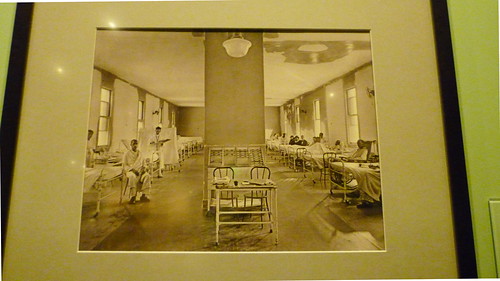I am an expert in PCP (primary care provider) selection. Why, you may ask? Because I have a lot of experience selecting PCPs.

I am a member of the generation of workers that changes jobs at least every two years or so. This means I get a new health insurer every two years or so. And I have yet to find a new health insurer who will cover expenses if I stay with my current PCP.
At this point, I don't even bother trying to remember my doctors' names or build much of a relationship with them. I don't go through the effort of transferring my health data either. Whatever energy I put into that relationship gets flushed down the toilet every two years or so.
Anyway, back to the point of this post: to share my personal wisdom on how to select a PCP. Here are the basic options:
a) Let the health insurer automatically (and presumably, randomly) assign you a PCP.
b) Choose a name randomly from the list they provide (which, by the way, may be out of date and require you making endless phone calls to find a PCP that *actually* accepts that insurance *and* is accepting new patients).
c) Choose someone who has a name that sounds appealing to you. If you are 'white bread' and proud of it, choose a PCP with a last name like Smith or Jones. If you are Latino/Latina, choose a PCP with a common Latin name. You get the picture, right?
d) Choose a PCP with a last name in the second half of the alphabet. If you are into fighting alphabet discrimination, this is a nice route to take. Those PCPs with last names that start with A, B, or C? They get way too much attention based on their arguably unfair placement in directories.
I've learned to take a slightly different route. Warning: this may not work for you.
I examine the entire directory. I assess the available information. This typically includes name and sex. You can guess at information about physician ethnicity from here. Sometimes directories include languages spoken. Again, this gives you a clue as to the ethnic background of the physician, if that makes a difference to you. Whether you are afraid of ethnic differences or embrace them, you can make decisions based on this limited information.
Oh, yeah, and if they list medical school? Bingo! That rounds out all the available information I've ever seen and brings me to sharing three of my most recent experiences in selecting a PCP.
A few years ago, I selected a PCP for my then pre-adolescent son based on one of these simple directories. I scanned through with ease and expertise (given I have plenty of experience analyzing such lists). And voila, I found my son's PCP! He fit my only preference (being that he was male!). I thought my son might like a male PCP. This doctor had an Indian-sounding last name, went to Howard University medical school (a predominantly African-American school in case you live under a rock or in the suburbs), and spoke several languages, including Spanish!
I hit the physician jackpot! I don't speak Spanish, but I thought it was cool that he did, especially considering he was likely Indian (really, how many people of Indian descent speak Spanish?) and he went to Howard?! This dude had to be an interesting person. (And turns out, he was a great doctor. But guess what? I changed jobs and ended up with a new health insurer that considered him 'out of network'.)
The next PCP I picked for my son was within the Kaiser Permanente (KP) system. I had a fairly short list to work with (trust me, this is *not* a complaint) since I wanted to go the facility closest to home. I ended up picking a female PCP based on her last name; it looked like an Arabic name. I figured she probably gets discriminated against by white people who grew up in the suburbs and watch too much network news. And sure enough, she was a lovely PCP for my son...until I lost my job. (Turns out I wasn't eligible for COBRA, so keeping KP was not an option.)
I picked my own PCP at KP based on where he went to medical school. Normally, I prefer female PCPs, but this guy went to medical school at the University of Michigan. I went to school at the University of Michigan (both undergraduate and graduate program) and relied on the University of Michigan Medical System for health care for many years. After having had countless negative experiences with the health care system in and near Flint, Michigan, I was happy with my care through the University of Michigan (ok, maybe there was one or two docs I didn't particularly care for, but that can be chalked up to personality issues).
Seeing as how neither my son nor I currently have health insurance, I have been spared the chore - for now - of selecting new PCPs for either of us. Hopefully I will have health insurance soon. Then, I will go through this process *yet again*.





